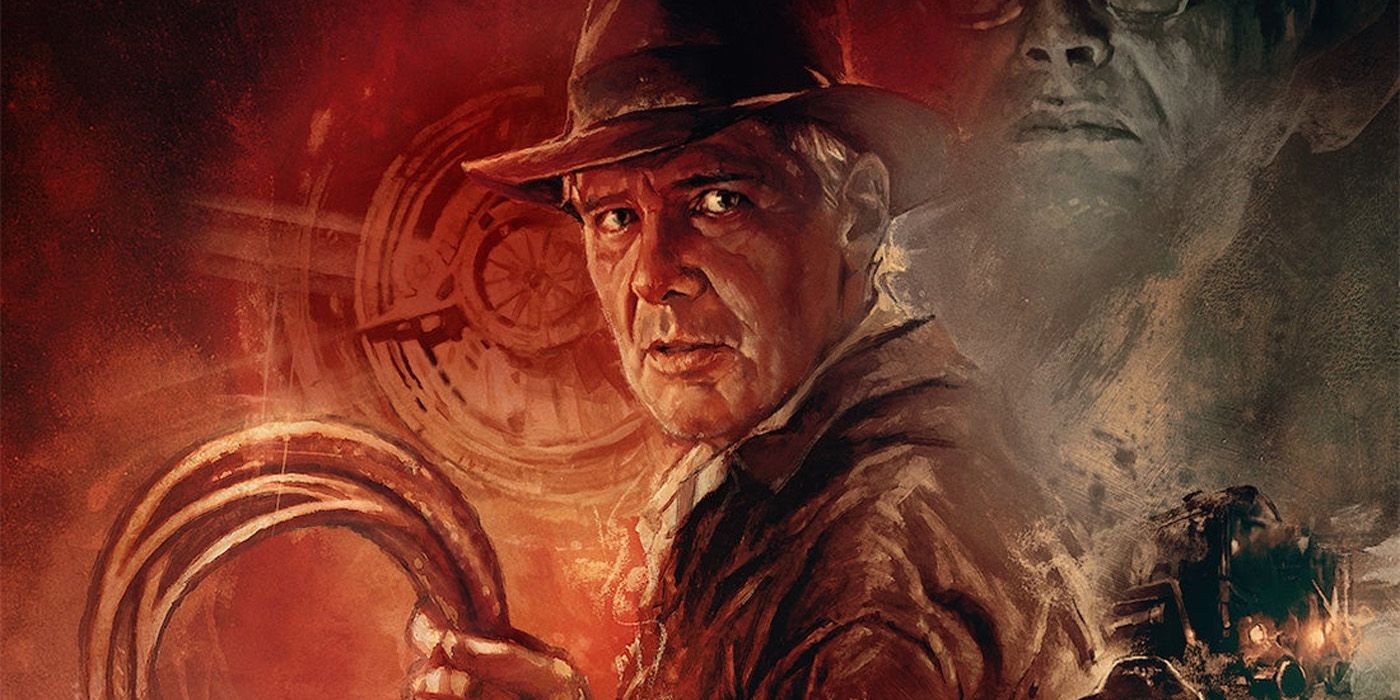The following contains spoilers for Indiana Jones and the Dial of Destiny, in theaters now.
Being an archeologist by trade, Indiana Jones as a hero is deeply rooted in real-world history. That's been a blessing and curse at various points in the series, but it allows him to connect with the ancient artifacts that often form the center of his adventures. It's also a thematic strength that improves the films when it's a focus -- so much so that it was clear when it was missing from the weaker entries in the series.
Indiana Jones and the Dial of Destiny brings history and the connection Indy has to it to the forefront -- both thematically and literally. The impact history has on Indiana Jones' life and relationships is a strong undercurrent of the film, connecting it to earlier movies in the series. It also explains why history makes these films and this character work so well.
Why History Matters to the Indiana Jones Films
History has been an intrinsic part of the Indiana Jones franchise since Raiders of the Lost Ark. The character's obsession with history and commitment to preserving it played heavily into his motivations in that film -- to the point where he initially allowed the villains to capture the Ark of the Covenant rather than risk destroying it. This carried over into The Last Crusade, which showcased how he shared that obsession with his father -- and how that trait could save people as easily as it could doom them.
Both films infused Indiana's love of history into his character growth and decisions. By contrast, Temple of Doom and Kingdom of the Crystal Skull failed to do so, choosing to introduce more overt supernatural and science-fiction elements respectively. As a result, Indy's character wasn't as easily reflected in those adventures. That's very much what separates Dial of Destiny from those weaker entries in the series: it goes back to perhaps the most important aspect of Indiana Jones' character and the thing that makes him different from any other hero.
How Indiana Jones and the Dial of Destiny Embraces History
Dial of Destiny is very heavily focused on Indiana Jones' belief that he's become a relic in his own time. His students -- once enraptured by his lecture -- are shown to be largely bored and far more preoccupied with space exploration. He has nothing to look forward to; he's alone after a tragic divorce from Marion Ravenwood and set to retire at the onset of the movie. Even when he rediscovers his sense of self while traveling the globe after the Archimedes Dial, Jones feels like someone out of time, both literally and figuratively.
This means his eventual trip to the ancient past comes not as a shock or horror, but as a relief. He can see firsthand what he's spent his entire life chasing and has no intention of leaving. He feels like he finally belongs. The reveal speaks to Jones' disconnect with his present and his lack of faith in the future. It's notable that Indy's newly introduced goddaughter Helena doesn't convince him otherwise, even though he sees the perils of his choice. Helena is forced to knock him out and literally drag him back to their present day, to prevent any potential changes to history and to save her godfather from his wounds.
History isn't just the source of MacGuffins and lore in Indiana Jones films; it's a way of charting the growth of the title character. Indy began as someone obsessed with history and preserving it. But as his age sets in, he increasingly sees himself as part of that history -- worth chronicling but unchanging and eventually alone. Helena reminds him of the friends and family he has in the present, and the children (like her partner-in-crime Teddy or Sallah's grandchildren) who will continue their love of history after they're gone. Indy may want to let his story come to an end and become a part of history, but his connections to those around him keep him rooted in life. As in those earlier films in the series, Dial of Destiny makes history not just the target and the tool, but the thematic throughline for Indiana Jones.


